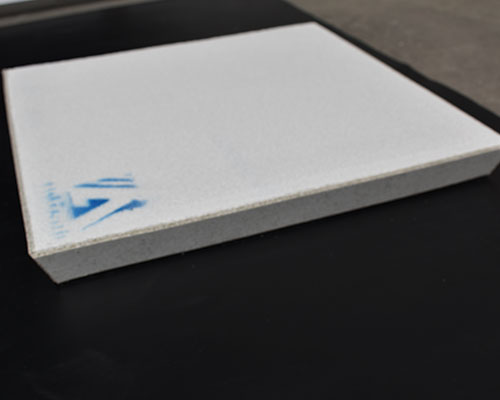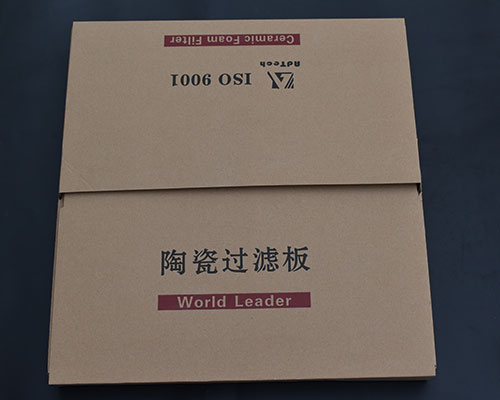Foundry Foam Ceramic Filter provides the best way to eliminate non-metallic inclusions, which are the main source of casting quality problems. And ceramic foam filter molten metal filtration helps you meet the growing demand for quality.
The inclusions are represented by alumina, silica, intermetallic sludge compounds, and other refractory and ceramic hard particles. There are many sources: dirty charges, tools, ingots, oxides, metalworking lubricants from oil return ports, gates and risers, casting sand on pigments, machined waste castings, from furnaces, ladles and The aluminum, magnesium and other reactive alloying elements in the oxide melt itself worn by the refractory materials of other molten metal processing vessels are deposited in the die-casting alloy (precipitation of intermetallic compounds at lower temperatures), flux salts and/or other metallurgy Good furnace practices for additives can help minimize the generation and retention of inclusions, but good practices alone are often not enough. You usually need effective filtering to ensure quality.
When casting products, remove impurities in molten metal, refractory waste, solid refractory alloys, sintered ore, eliminate turbulence, reduce casting porosity, and improve casting quality. Therefore, our ceramic foam filter (foam ceramic) is widely used in the aluminum casting industry to prevent defects and other impurities caused by oxides, scum, gas, slag.

Foundry Foam Ceramic Filter Function
- The ceramic foam filter eliminates the turbulence in the metal flow, makes the metal flow smooth, and avoids spraying, splashing and collapse. Improve fluidity, castability, workability, output and cost-effectiveness.
- Remove a larger proportion of fine particles, reduce waste and rework losses.
- Provide consistent flow rate and capacity.
- Various sizes, shapes and apertures are available.
Alumina ceramic foam filters are mainly used in the filtration of aluminum and aluminum alloys in foundries and foundries. Alumina (Al2O3) ceramic foam filter has excellent resistance to molten aluminum erosion and corrosion, can effectively remove inclusions, reduce residual gas and provide laminar flow, and then the filtered metal is significantly cleaner. Cleaner metals can produce higher-quality castings, fewer scraps and fewer inclusion defects, all of which help increase profits.
Alumina ceramic foam filters are available in all standard sizes and different thicknesses. The most common porosities are PPI 20 and 30. Can provide higher porosity on request. The size of the filter can also be customized.

